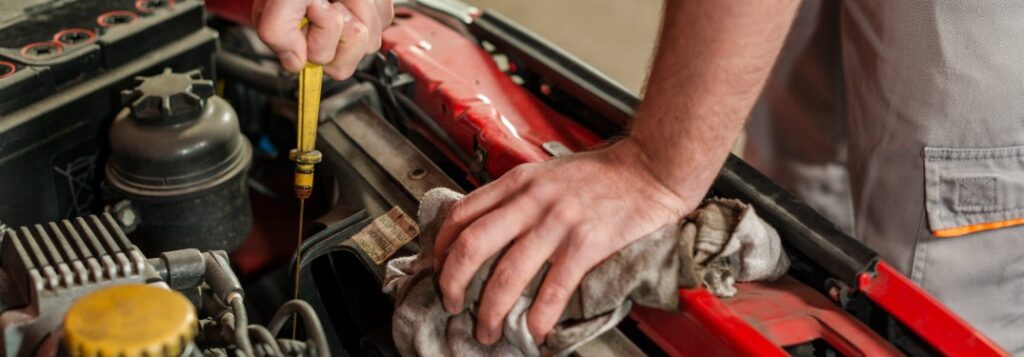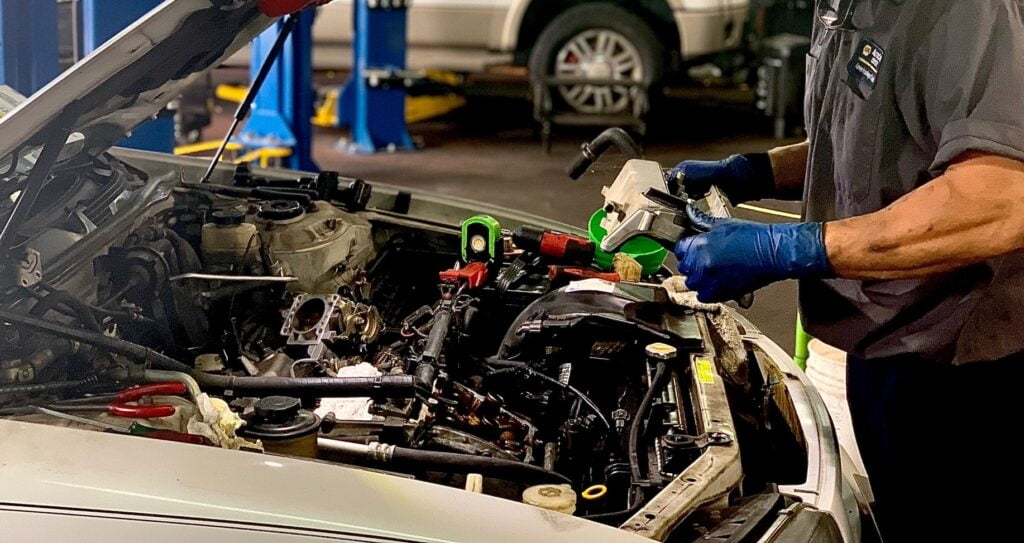Do You Check Oil When Car is Hot Or Cold? Find Out the Best Time to Check Your Oil!
It is recommended to check the oil when the car engine is cold, although some automakers suggest checking when the engine is warm for certain vehicles. Always refer to your car’s Owner’s Manual to determine the correct procedure. Checking the oil level in a car is an important maintenance task that ensures the engine operates smoothly. However, many car owners are uncertain about when to check the oil – whether it should be done when the engine is hot or cold. The recommended practice for most cars is to check the oil when the engine is cold. This allows the oil to settle in the oil pan, giving a more accurate reading. However, there are exceptions, with some automakers advising checking the oil when the engine is warm. To eliminate any confusion, it is always advisable to consult the Owner’s Manual for your specific vehicle. By following the manufacturer’s guidelines, you can ensure that you are checking the oil correctly and maintaining the optimal performance of your car’s engine. The Importance Of Checking Your Oil Regularly To determine whether you should check your oil when your car is hot or cold, it’s recommended to consult your Owner’s Manual. While most cars require checking the oil when the engine is cold, certain vehicles may have different guidelines. Following the manufacturer’s recommendation ensures accurate readings. Why Regular Oil Checks Are Essential For Vehicle Maintenance Regularly checking your car’s oil is one of the most important maintenance tasks you can perform. Engine oil plays a critical role in keeping your engine running smoothly, lubricating its moving parts, and protecting against wear and tear. Without proper oil levels, your engine can suffer irreversible damage, leading to costly repairs or even engine failure. Therefore, it is crucial to understand the importance of checking your oil regularly and to follow the manufacturer’s guidelines for when to check it. The Consequences Of Neglecting To Check Your Oil Neglecting to check your oil regularly can have severe consequences for your vehicle’s performance and longevity. Failing to maintain proper oil levels can lead to increased friction between engine components, resulting in excessive heat, wear, and tear. Over time, this can cause engine parts to seize, leading to costly repairs or the need for a full engine replacement. Additionally, low oil levels can result in poor fuel efficiency and decreased engine performance. Therefore, neglecting to check your oil regularly can not only affect the lifespan of your engine but also increase your overall vehicle maintenance costs. To ensure the longevity and optimal performance of your engine, it is essential to check your oil regularly and adhere to the manufacturer’s guidelines for when to check it, whether it is when the engine is hot or cold. Checking your oil at regular intervals allows you to identify any potential issues early on, such as oil leaks or excessive oil consumption. By catching these problems early, you can take the necessary steps to address them before they escalate into more significant and costlier repairs. In conclusion, regularly checking your oil is a crucial aspect of vehicle maintenance. It allows you to maintain proper oil levels, prevent engine damage, and extend the longevity of your engine. Whether you check your oil when the engine is hot or cold depends on the specific recommendations of your car’s manufacturer, so always consult your Owner’s Manual for the correct procedure. By taking the time to check your oil regularly and following the manufacturer’s guidelines, you can ensure your vehicle’s engine operates smoothly and efficiently for years to come. Understanding Oil And Its Properties When it comes to checking the oil in your car, it is generally recommended to do so when the engine is cold. However, some vehicle manufacturers may suggest checking the oil when the engine is warm. To be sure, always consult your Owner’s Manual for the specific instructions for your car. The Role Of Oil In Engine Performance And Lubrication Oil plays a crucial role in the performance and lubrication of a car’s engine. It acts as a lubricant, reducing friction between moving parts and preventing wear and tear. Additionally, oil helps to cool down the engine by dissipating heat generated during combustion. Proper lubrication ensures smooth operation and longevity of the engine. How Oil Properties Change With Temperature The properties of oil can change with temperature, which affects its effectiveness as a lubricant. When the engine is cold, oil tends to be thicker and more viscous. This allows it to provide better protection during startup and cold weather conditions. On the other hand, when the engine is warm, oil becomes thinner and more fluid. This helps it to flow more easily throughout the engine, reducing friction and heat buildup. It’s important to note that different engine designs and oil types can have varying temperature requirements. Some automakers recommend checking the oil when the engine is cold, while others suggest doing it when the engine is warm. To determine the specific recommendation for your car, it’s best to consult the Owner’s Manual. In conclusion, understanding the properties of oil and how they change with temperature is essential for maintaining the optimal performance and longevity of your car’s engine. Checking the oil at the appropriate temperature as recommended by the automaker ensures accurate readings and allows you to ensure that the engine is properly lubricated. So, take the time to understand your car’s specific requirements and follow the recommended guidelines to keep your engine running smoothly. Checking Your Oil When The Engine Is Hot When it comes to checking your oil, it is generally recommended to do it when the engine is cold. However, some car manufacturers may suggest checking it when the engine is warm. To find out the specific guidelines for your car, refer to your Owner’s Manual. When it comes to checking your car’s oil, the general recommendation is to do so when the engine is cold. This allows the oil to settle in the oil pan, providing more accurate readings.
Do You Check Oil When Car is Hot Or Cold? Find Out the Best Time to Check Your Oil! Read More »






